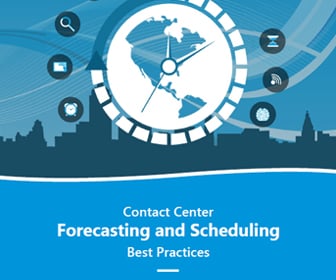Workforce Management Featured Article
What Managers Can Learn from Office Space

Managing people is tough. But if you’re a go-getter, good at your job, and/or a people person, you may at some point be asked to be a manager. In fact, perhaps you already occupy a managerial position.
Whether you’re an existing manager, a manager wannabe, or just a warm body who may eventually get called on to lead others, there are a few things you’ll want to do. They include creating connections, as well as driving improvement through coaching, and process review, revision, or replacement.
In offering up these suggestions, I have call center and contact center managers in mind. But, really, they apply to managers in any department or discipline.
The first suggestion involves making connections with others around you.
As we all know, it’s important to keep things on a professional level at work. But it’s also worth noting that people are more than just their work personas.
And it’s tough to really connect with the individuals you supervise if all you ever talk about is work. Just consider Bill Lumbergh.
Lumbergh is the fictional character played by Gary Cole in the 1999 cult film classic Office Space. He’s the manager of our hero, Peter. The main character, Peter is bright and young, but he’s disengaged at work.
That’s in part because Lumbergh has not forged a personal connection with Peter. Instead, he spends a lot of his time hounding Peter to produce TPS reports. And Peter thinks these reports don’t have much, if any, value.
The lesson here is that managers need to take the time to explain the jobs they assign and why they’re important. They should let their employees know they and their work are valued. And they also should spend some time and effort interacting with employees so they know what those people consider important.
Once managers and those they lead have established a good relationship, it makes coaching a whole lot easier. It creates a greater likelihood that when managers offer assignments or guidance, workers will want to successfully complete that work and adjust as needed for best results.
Speaking of best results, while process at an organization is important, existing processes may not always be the best way to do things. So it’s the responsibility of managers to take note of what needs improvement and then to work with key stakeholders to review and replace those processes when necessary.
Of course, good managers will also be open to – and even sometimes actively seek out – input on such matters from their agents or other direct reports.







